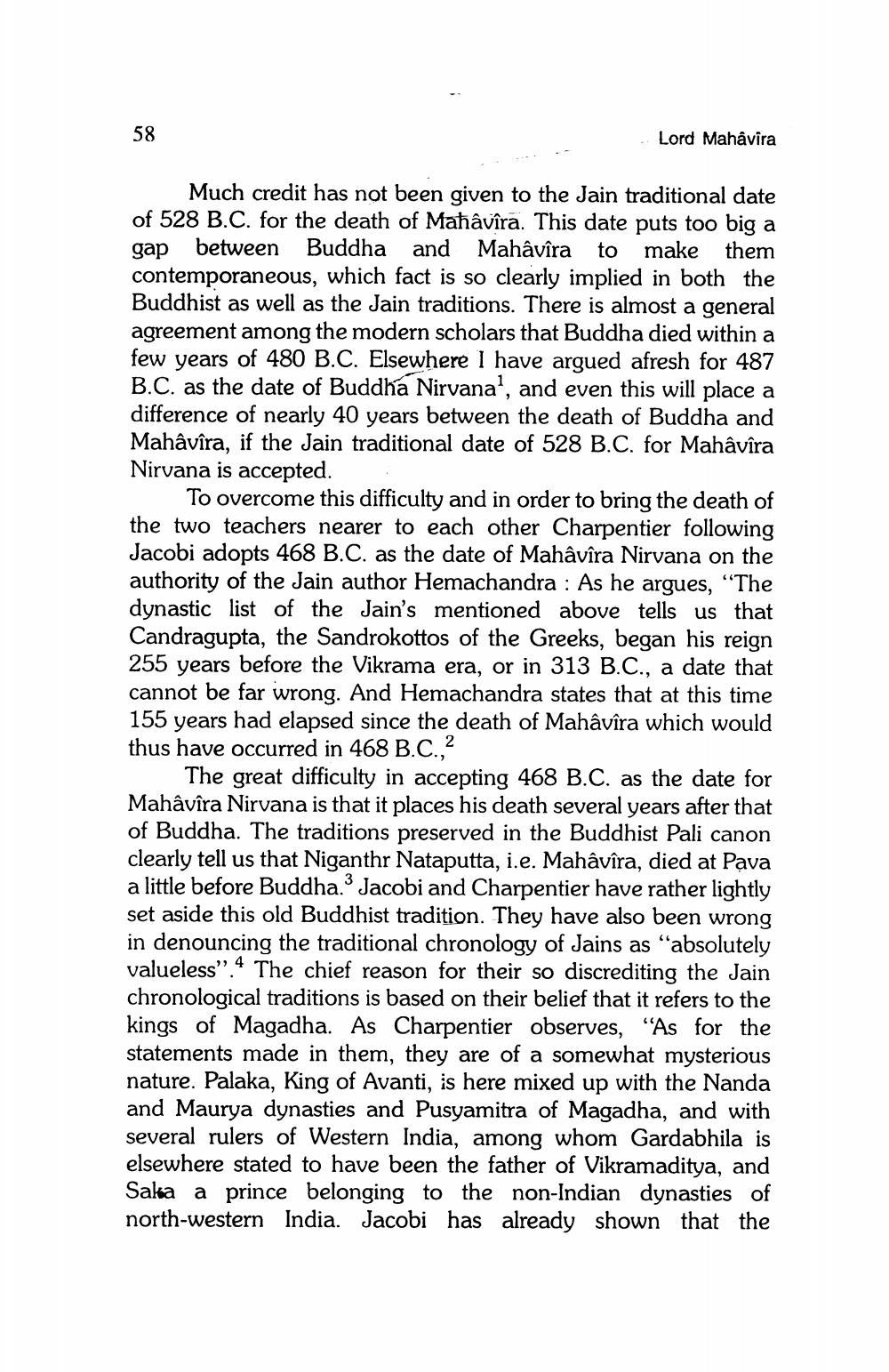________________
58
Lord Mahavira
Much credit has not been given to the Jain traditional date of 528 B.C. for the death of Maħâvîra. This date puts too big a gap between Buddha and Mahâvîra to make them contemporaneous, which fact is so clearly implied in both the Buddhist as well as the Jain traditions. There is almost a general agreement among the modern scholars that Buddha died within a few years of 480 B.C. Elsewhere I have argued afresh for 487 B.C. as the date of Buddha Nirvana', and even this will place a difference of nearly 40 years between the death of Buddha and Mahâvîra, if the Jain traditional date of 528 B.C. for Mahâvîra Nirvana is accepted.
To overcome this difficulty and in order to bring the death of the two teachers nearer to each other Charpentier following Jacobi adopts 468 B.C. as the date of Mahâvîra Nirvana on the authority of the Jain author Hemachandra : As he argues, "The dynastic list of the Jain's mentioned above tells us that Candragupta, the Sandrokottos of the Greeks, began his reign 255 years before the Vikrama era, or in 313 B.C., a date that cannot be far wrong. And Hemachandra states that at this time 155 years had elapsed since the death of Mahâvîra which would thus have occurred in 468 B.C.,
The great difficulty in accepting 468 B.C. as the date for Mahâvîra Nirvana is that it places his death several years after that of Buddha. The traditions preserved in the Buddhist Pali canon clearly tell us that Niganthr Nataputta. i.e. Mahâvîra, died at Pava a little before Buddha." Jacobi and Charpentier have rather lightly set aside this old Buddhist tradition. They have also been wrong in denouncing the traditional chronology of Jains as "absolutely valueless”.4 The chief reason for their so discrediting the Jain chronological traditions is based on their belief that it refers to the kings of Magadha. As Charpentier observes, “As for the statements made in them, they are of a somewhat mysterious nature. Palaka, King of Avanti, is here mixed up with the Nanda and Maurya dynasties and Pusyamitra of Magadha, and with several rulers of Western India, among whom Gardabhila is elsewhere stated to have been the father of Vikramaditya, and Saka a prince belonging to the non-Indian dynasties of north-western India. Jacobi has already shown that the




